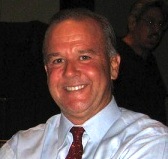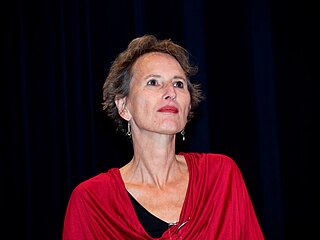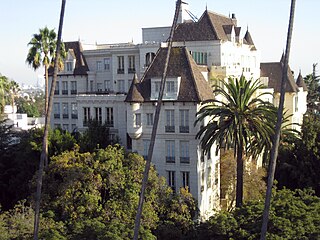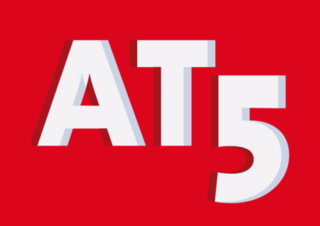Related Research Articles

Xenu, also called Xemu, is a figure in the Church of Scientology's secret "Advanced Technology", a sacred and esoteric teaching. According to the "Technology", Xenu was the extraterrestrial ruler of a "Galactic Confederacy" who brought billions of his people to Earth in DC-8-like spacecraft 75 million years ago, stacked them around volcanoes, and killed them with hydrogen bombs. Official Scientology scriptures hold that the thetans of these aliens adhere to humans, causing spiritual harm.

There are a number of disputes concerning the Church of Scientology's attempts to suppress material critical of Scientology and the organization on the Internet, utilizing various methods – primarily lawsuits and legal threats, as well as front organizations. In late 1994, the organization began using various legal tactics to stop distribution of unpublished documents written by L. Ron Hubbard. The organization has often been accused of barratry through the filing of SLAPP suits. The organization's response is that its litigious nature is solely to protect its copyrighted works and the unpublished status of certain documents.

The Church of Scientology has been involved in numerous court disputes across the world. In some cases, when the Church has initiated the dispute, questions have been raised as to its motives. The Church of Scientology says that its use of the legal system is necessary to protect its intellectual property and its right to freedom of religion. Critics say that most of the organization's legal claims are designed to harass those who criticize it and its manipulative business practices.

XS4ALL was an Internet service provider (ISP) in the Netherlands. It was founded in 1993 as an offshoot of the hackers club Hack-Tic by Felipe Rodriquez, Rop Gonggrijp, Paul Jongsma and Cor Bosman, while based in Amsterdam. It was the sixth provider in the Netherlands and the second company to offer Internet access to private individuals. Initially only offering dial-in services via modem and ISDN, it later expanded to offer dial-up access as well as ADSL, VDSL, and fiber-optic (FTTH) services as well as mobile internet. The name is a play on the English pronunciation of access for all.

Since its inception in 1954, the Church of Scientology has been involved in a number of controversies, including its stance on psychiatry, Scientology's legitimacy as a religion, the Church's aggressive attitude in dealing with its perceived enemies and critics, allegations of mistreatment of members, and predatory financial practices; for example, the high cost of religious training:191 and perceived exploitative practices. When mainstream media outlets have reported alleged abuses, representatives of the church have tended to deny such allegations.

The Fishman Affidavit is a set of court documents submitted by self-professed ex-Scientologist Steven Fishman in 1993 in the federal case, Church of Scientology International v. Fishman and Geertz (Case No. CV 91-6426.

In Scientology, Operating Thetan (OT) is a state of complete spiritual freedom in which one is a "willing and knowing cause over life, thought, matter, energy, space and time". The Church of Scientology offers eight "levels" of OT, each level costing thousands of US dollars. Each OT level is confidential and is not revealed to anyone beforehand. In summary, the objective of these levels is to remove "body thetans" which are "confused, disembodied souls from other planets who have attached themselves to us".

The Church of Scientology is a group of interconnected corporate entities and other organizations devoted to the practice, administration and dissemination of Scientology, which is variously defined as a cult, a business, or a new religious movement. The movement has been the subject of a number of controversies, and the Church of Scientology has been described by government inquiries, international parliamentary bodies, scholars, law lords, and numerous superior court judgements as both a dangerous cult and a manipulative profit-making business.

Mark C. "Marty" Rathbun is a former senior executive of the Church of Scientology who last held the post of Inspector General of the Religious Technology Center (RTC), the organization that is responsible for the protection and enforcement of all Dianetics and Scientology copyrights and trademarks. As the inspector general, Rathbun led the RTC's international Inspector General Network, collectively responsible for internal maintenance and consistency of Scientology's practices and procedures in its organizations, and for ensuring perfect adherence to all Church policies as attributed to Scientology founder L. Ron Hubbard. Rathbun left the Church of Scientology in 2004 and became an independent Scientologist, later stating that he considers himself non-religious. Since 2016, Rathbun began criticizing former church members on his blog. He has also spoken out against prominent critics of Scientology, prompting speculation that he may have returned to the Church.

This is a Timeline of Scientology and its forerunner Dianetics, particularly its foundation and development by author L. Ron Hubbard as well as general publications, articles, books and other milestones.

Recognition of Scientology and the Church of Scientology varies from country to country with respect to state recognition for religious status, charitable status, or tax exempt status. Decisions are contingent upon the legal constructs of each individual country, and results are not uniform worldwide. For example, the absence of a clear definition for 'religion' or 'religious worship' has resulted in unresolved and uncertain status for Scientology in some countries.

Scientology is a set of beliefs and practices invented by the American author L. Ron Hubbard, and an associated movement. It is variously defined as a cult, a business, a religion, or a scam. Hubbard initially developed a set of ideas that he called Dianetics, which he represented as a form of therapy. An organization that he established in 1950 to promote it went bankrupt, and Hubbard lost the rights to his book Dianetics in 1952. He then recharacterized his ideas as a religion, likely for tax purposes, and renamed them Scientology. By 1954, he had regained the rights to Dianetics and founded the Church of Scientology, which remains the largest organization promoting Scientology. There are practitioners independent of the Church, in what is referred to as the Free Zone. Estimates put the number of Scientologists at under 40,000 worldwide.

Karin Pouw is a French-born American official within the Church of Scientology International. Since 1993, she has held the position of Director of Public Affairs in the Office of Special Affairs (OSA) and serves as one of Scientology's international spokespersons.

Karin Spaink is a Dutch journalist, writer and feminist. She is also a free speech advocate and social critic, who has criticized New Age writers and the Church of Scientology.

The Church of Scientology has operated in Germany since 1970. German authorities estimate that there are 3,500 active Scientologists in Germany as of 2019. The Church of Scientology gives a membership figure of around 12,000. The Church of Scientology has encountered particular antagonism from the German press and government and occupies a precarious legal, social, and cultural position in Germany.

Scientology was founded in the United States by science fiction author L. Ron Hubbard and is now practiced in many other countries.

The Scientology movement has been present in Canada since at least the 1960s. According to the most recent available census data, there were 1,745 individuals in Canada identifying as Scientologists in 2011. Scientology has encountered difficulties in obtaining status as a tax exempt organization, as has happened in other countries.

AT5 is a local television station in Amsterdam, Netherlands. It first broadcast on April 1, 1992.

The tax status of the Church of Scientology in the United States has been the subject of decades of controversy and litigation. Although the Church of Scientology was initially partially exempted by the Internal Revenue Service (IRS) from paying federal income tax, its two principal entities in the United States lost this exemption in 1957 and 1968. This action was taken because of concerns that church funds were being used for the private gain of its founder L. Ron Hubbard or due to an international psychiatric conspiracy against Scientology.
Sandra Palmen-Schlangen is a Dutch jurist, civil servant, and politician of New Social Contract (NSC). She was elected to the House of Representatives in the November 2023 general election. In December 2024, she left parliament to join the Schoof cabinet as State Secretary for Benefits and Redress, succeeding Nora Achahbar.
References
- ↑ "Rondleiding" [Tour]. Church of Scientology Amsterdam (in Dutch). Retrieved 22 July 2023.
- 1 2 "A staat voor Amsterdam – een nieuwe Scientology Kerk straalt in alfa-wereldstad" [A stands for Amsterdam - a new Church of Scientology shines in alpha metropolis]. Church of Scientology Amsterdam (in Dutch). Retrieved 22 July 2023.
- ↑ "De toekomst van Scientology is grimmig" [The future of Scientology is grim]. Trouw (in Dutch). 14 September 2015. Retrieved 22 July 2023.
- ↑ Singel, Ryan. "Anonymous Hackers Shoot For Scientologists, Hit Dutch School Kids". Wired. ISSN 1059-1028 . Retrieved 22 July 2023.
- 1 2 Van der Aa, Edwin (1 September 2022). "Fiscus geeft Scientology belastingvoordeel, tegen uitspraak Hoge Raad in" [The tax authorities give Scientology tax benefits, against the Supreme Court ruling]. AD (in Dutch). Retrieved 23 July 2023. [The Church of Scientology Amsterdam, a controversial religious movement, has been granted a tax-friendly status by the Tax and Customs Administration after years of legal battle. The 'church' would comply with the current rules, the tax authorities said in an explanation on Wednesday evening. While the Supreme Court ruled in 2016 that the organization is not a Public Benefit Institution like other churches.]
- ↑ "Scientology zet kinderen in als psycholoog" [Scientology uses children as psychologists]. www.at5.nl (in Dutch). Retrieved 22 July 2023.
- ↑ "Scientology Kerk klaar voor feestelijke opening: 'Heel intimiderend'" [Church of Scientology ready for grand opening: 'Very intimidating']. www.at5.nl (in Dutch). Retrieved 22 July 2023.
- ↑ "Grote 'Scientology'-letters lichten op in de Wibautstraat" [Large 'Scientology' letters light up in Wibautstraat]. www.at5.nl (in Dutch). Retrieved 22 July 2023.
- ↑ "Even tienduizend euro regelen: Waarom Scientology altijd geld nodig heeft" [Just arrange ten thousand euros: Why Scientology always needs money]. Trouw (in Dutch). 12 September 2015. Retrieved 22 July 2023.
- 1 2 "2022 Report on International Religious Freedom: Netherlands". United States Department of State, Office of International Religious Freedom. Retrieved 22 July 2023.
- 1 2 "Donations to church of Scientology now tax deductible". NL Times. 3 September 2022. Retrieved 23 July 2023.
- ↑ "Road Map to: The Church of Scientology vs. the Net". MIT OpenCourseWare. Retrieved 22 July 2023.
- 1 2 3 4 "Scientology Kerk verliest zaak tegen Karin Spaink" [Church of Scientology loses case against Karin Spaink]. Recht.nl. 4 September 2023. Retrieved 22 July 2023.